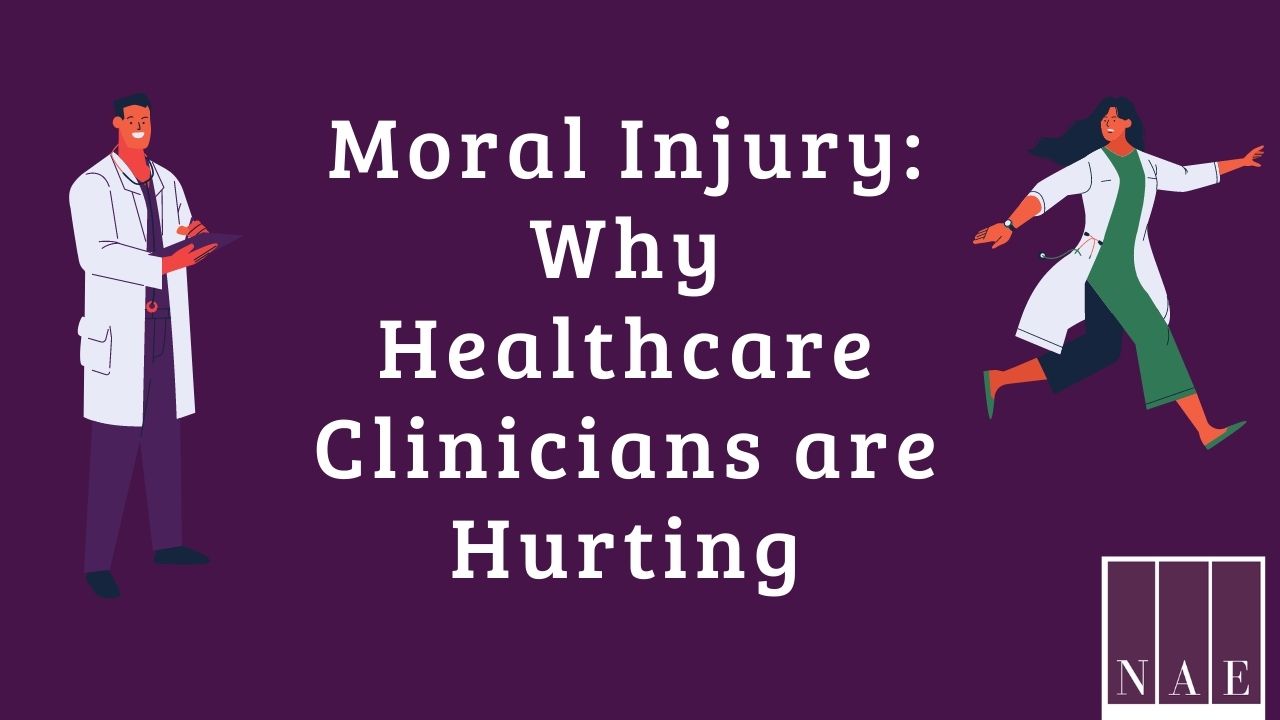Second Victimization, Compassion Fatigue, Moral/Injury Distress and Burnout
What do second victimization, compassion fatigue, moral injury, moral distress, and burnout all have in common? It sounds like the foundation of a good joke, right? But it really is a pretty serious issue.
Our healthcare clinicians are struggling! They are overworked, often underpaid, have to contend with the already challenging provision of care with limited resources and doing all of this now during a pandemic. This is like no other period in their lifetime. They are managing so many competing priorities when all they want to do is care for their patients.
What is Second Victimization?
Second victimization is when the clinicians involved in an unexpected patient outcome, medical error or adverse event become traumatized by the event. Albert Wu, MD originally coined the term in 2000 describing it as having lasting consequences and various degrees of distress for the affected (Patient Safety Network, 2019). If errors or unexpected events occur on top of the COVID 19 pandemic, clinicians are battling more than one demon.
What is Compassion Fatigue?
Compassion fatigue is different from second victimization. Those whose work in industries that involves being exposed to others’ pain over time are vulnerable to compassion fatigue, “also known as secondary or vicarious trauma, and can experience acute symptoms that put their physical and mental health at risk and make them warier of giving of themselves” (Psychology Today, 2020, para 1). Many of the symptoms experience by clinicians are the same, but the cause is different. Compassion fatigue is due to the witnessing of pain and not due to an error or unexpected outcome.
What is Moral Injury/Distress/Burnout?
Moral injury describes “a cluster of symptoms — similar to those associated with posttraumatic stress disorder (PTSD)— that result from personal experiences, which violate a person’s deepest and most closely held values and principles” (Matthews, 2018, para 1).
Although it is not one isolated event like that that often leads to PTSD, instead it is more related to violations of standards and expectations along with a continuous ongoing sense of powerlessness to resolve these issues. These factors are also known to be associated with PTSD and other related issues (Matthews, 2018).
Clinicians who continuously feel overwhelmed, underappreciated, and completely powerless in the face of challenging patient situations may develop moral injury. This may also be referred to as “moral distress” or “burnout”. Burnout as a term is not universally accepted. It is considered a poor language choice as it puts the onus on the “victim” as opposed to the system that placed them in the situation that led to the distress.
Symptoms of a Larger Systemic Healthcare Problem
All of these symptoms of a sick healthcare system (2nd victimization, compassion fatigue and moral injury) can overlap. One clinician may be experiencing more than one simultaneously and this only compounds the severity for the individual and the need for the system to resolve their underlying issues. They are interrelated but still are unique concepts. Experiencing more than one at a time can only compound the issue.
Widespread clinician support systems beyond the standard employee assistance programs must be deployed to clinicians after any potential stress inducing traumatic event. The clinicians who act as peer supporters in these programs must not only have experienced these issues firsthand but also have had training on each one and understanding the unique needs presented by each one.
See previous blog where we discuss resilience, grit and toxic positivity in healthcare here
Matthews, M. D. (2018). Moral injury: toxic leadership, maleficent leadership organizations, and psychological distress. Retrieved from https://www.psychologytoday.com/us/blog/head-strong/201803/moral-injury
Patient Safety Network (2019). Second victims: Support for clinicians involved in errors and adverse events, Patient Safety Primer. Retrieved from https://psnet.ahrq.gov/primer/second-victims-support-clinicians-involved-errors-and-adverse-events
Psychology Today (2020). Compassion fatigue. Retrieved from https://www.psychologytoday.com/us/basics/compassion-fatigue

